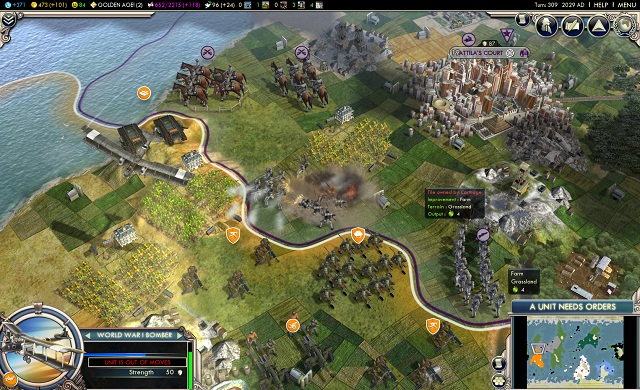Ernest Hemmingway said, "All thinking men are atheists." He clearly didn't get the gameplay perks of religion.
I’ll be completely honest with you (and when have I ever been otherwise?)—I’ve never played a Civilization game before in my life. Based on what I saw of the older Civ games when I was growing up, I just kind of…











